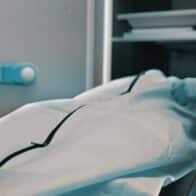If you believe a family member or other person in your life is experiencing nursing home neglect, and you decide to file an injury claim, you’re going to need to get prepared. You’ll need to show that the required elements exist, and you’re going to need strong evidence to back up your claim and prove nursing home neglect occurred.
Table of Contents
ToggleWhat Evidence Do You Need to Sue a Nursing Home for Neglect?
The majority of lawsuits against nursing home facilities are based on negligence. Negligence refers to a failure to act in a way that a reasonable, prudent person or business would have acted under similar circumstances. To establish a claim for nursing home neglect, you will need to provide evidence that proves all the legal elements of neglect. This includes:
- Establishing that the nursing home owed the resident a duty of care.
- Demonstrating that the nursing home negligently or intentionally breached that duty.
- Showing that the breach caused an injury.
- Proving that the breach of duty resulted in loss or damages.
Evidence to Prove Nursing Home Neglect
To prove nursing home neglect, your attorney will gather a variety of types of evidence from various sources.
Medical Records
Medical records can be a valuable source of evidence when trying to prove a nursing home neglect claim. Medical records can include records of treatments for unexplained injuries, malnutrition, dehydration, or bedsores. They are also useful in demonstrating how the victim’s health deteriorated over time.
Photographs
Photographs can also be valuable evidence when trying to prove nursing home neglect. Your nursing home neglect attorney might include pictures of the victims as well as photos of the facility. Your lawyer might also present photos or video footage of soiled bedding, unsanitary conditions, or unsafe conditions to prove nursing home neglect.
Witness Statements
Witnesses may also be able to provide evidence of nursing home neglect. Potential witnesses could be the other residents, visitors, employees, or volunteers. Insurance companies that defend neglect claims typically give a lot of weight to the statements of third-party witnesses.
Surveillance Footage
Many nursing home facilities maintain surveillance cameras in the common areas, like hallways, dining areas, and lounges. Footage can be used to show demonstrate the lack of care provided, or how often nurses and other caregivers entered your loved one’s room. Unfortunately, in-room cameras often referred to as “Granny cameras”, are not legal in Nevada nursing homes.
Hiring and Training Practices
Nursing homes owe a duty to residents to screen staff members, identify workers who are not suitable to provide care, and provide adequate training to employees they hire. If your nursing home neglect lawyer can identify negligent hiring and training practices performed by the facility, the business can be held liable for your loved one’s injuries.
Caregiver Schedules
Your injury attorney can gain access to caregiver schedules that may reveal staffing shortages or employees who may be overworked. Studies reveal that understaffing and labor shortages raise the risk of nursing home neglect and abuse.
Medical Expert Testimony
Medical experts may also be brought in to help your attorney prove nursing home neglect. A medical expert may be able to testify about whether proper medical standards and procedures were adhered to, and the extent of the victim’s injuries.
Other Evidence to Prove Nursing Home Neglect
Additional evidence that could be used to prove nursing home neglect includes complaints or citations that the nursing home has received. Ombudsman programs will likely have records of past complaints filed against the facility.
There may also be records of inspections or past citations that the nursing home has received. Nevada’s Long Term Care Ombudsmen conduct unannounced quarterly visits to nursing home facilities throughout the state. The Ombudsmen program also investigates resident complaints and keeps detailed records. A nursing home neglect attorney may be able to assist in obtaining documentation of past complaints and investigations.
Finally, to show that you are eligible to file your claim of nursing home neglect on behalf of a loved one, you will likely need documentation showing what your relationship is to the person suffering the neglect.
What Is Nursing Home Neglect?
When you make the decision to place a loved one in a nursing home or long-term care facility, you have the right to expect that they will receive quality care and be treated well. Unfortunately, that isn’t always the case. Nursing home neglect is quite common and is often underreported.
Nursing home neglect generally refers to the improper care of nursing home residents. Nevada requires that nursing home residents receive a specified standard of care. This includes a certain standard of hygiene and nutrition, as well as proper medical care and medications. Despite these minimum standards of care, nursing home neglect still occurs due to several factors.
Why Does Nursing Home Neglect Happen?
Neglect sometimes happens because caregivers in nursing homes intentionally fail to perform the duties of their jobs. In some cases, nursing home neglect may be the result of understaffing, inadequate training, or negligent hiring.
What Are the Types of Nursing Home Neglect?
There are several types of nursing home neglect. A nursing home resident may suffer from emotional or social neglect, medical neglect, or neglect of basic needs. The evidence you need to prove a nursing home neglect claim, and the type of claim you might have, will depend on the type of neglect involved.
Nursing home emotional abuse or neglect may include ignoring a resident, failing to allow them to socialize and connect with others, and leaving them alone for extended periods.
Medical neglect, on the other hand, refers to a failure to properly treat or prevent health problems.
Neglect of basic needs includes failing to provide sufficient food, water, personal hygiene, and a clean environment. Examples of neglect in nursing homes include:
- Failure to provide dental care
- Not keeping residents hydrated
- Not giving residents regular baths
- Not doing a range of motion exercises
- Not providing bedridden residents with activities and socialization
- Not giving prescribed medications
Signs of Nursing Home Neglect
When a loved one is residing in a nursing home, you will want to make sure that person is receiving good quality care. To help you identify the signs of nursing home neglect, it is a good idea to be aware of what neglect in a long-term care facility might look like.
Some signs to watch for might include:
- Unexplained injuries such as bruises, cuts, broken bones, or other injuries.
- Sudden changes in mood may also indicate something is not quite right.
- Signs of dehydration and malnutrition, including tiredness, irritability, hair loss, sudden weight loss, and complaints of feeling cold.
Another warning sign that a nursing home resident may not be receiving proper care is a loss of or lack of mobility. If nursing home caregivers leave residents sitting for long periods of time in beds or wheelchairs, they may develop mobility issues.
Bedsores that do not heal, or worsen over time, can also indicate that your loved one is suffering from neglect. Bedsores can be easily prevented by turning bed bound patients. They are most often caused when nursing home residents are left in the same position for extended periods, when they are left to sit or lie in soiled clothing or bedding, and when their skin is not properly cleaned and moisturized. Be alert to the stages of bedsores, and be sure to take action if new sores develop or existing ones worsen.
It is also a good idea to watch how your loved one reacts around caretakers. Appearing nervous or fearful of caretakers could be a sign that your loved one has been mistreated. Talk to your loved one about the care he or she is receiving, and believe residents if they report that something is not right.
What to Do if You Suspect Nursing Home Neglect
If you suspect nursing home neglect, bring your concerns to the attention of nursing home staff right away. If caregivers cannot give a reasonable explanation for your concerns, make a complaint to a higher authority. In Nevada, this might include the Nevada Long Term Care Ombudsman Program, Nevada Aging and Disability Services Division, or the Nevada Division of Public and Behavioral Health. A nursing home neglect attorney near you can also provide you with local resources to help your loved one.
If your loved one suffered injuries caused by nursing home neglect, you may be able to recover compensation that can help you in paying for medical treatment, moving the victim to another facility, and other related costs.
Compensation for nursing home neglect may include coverage for costs of current and future medical treatment, mental health therapy, pain and suffering, mental anguish, and wrongful death awards. Nevada law allows recovery for nursing home neglect claims of two times the actual damages incurred.
A nursing home negligence lawyer can help you prove nursing home neglect and determine what compensation you may be entitled to recover.





